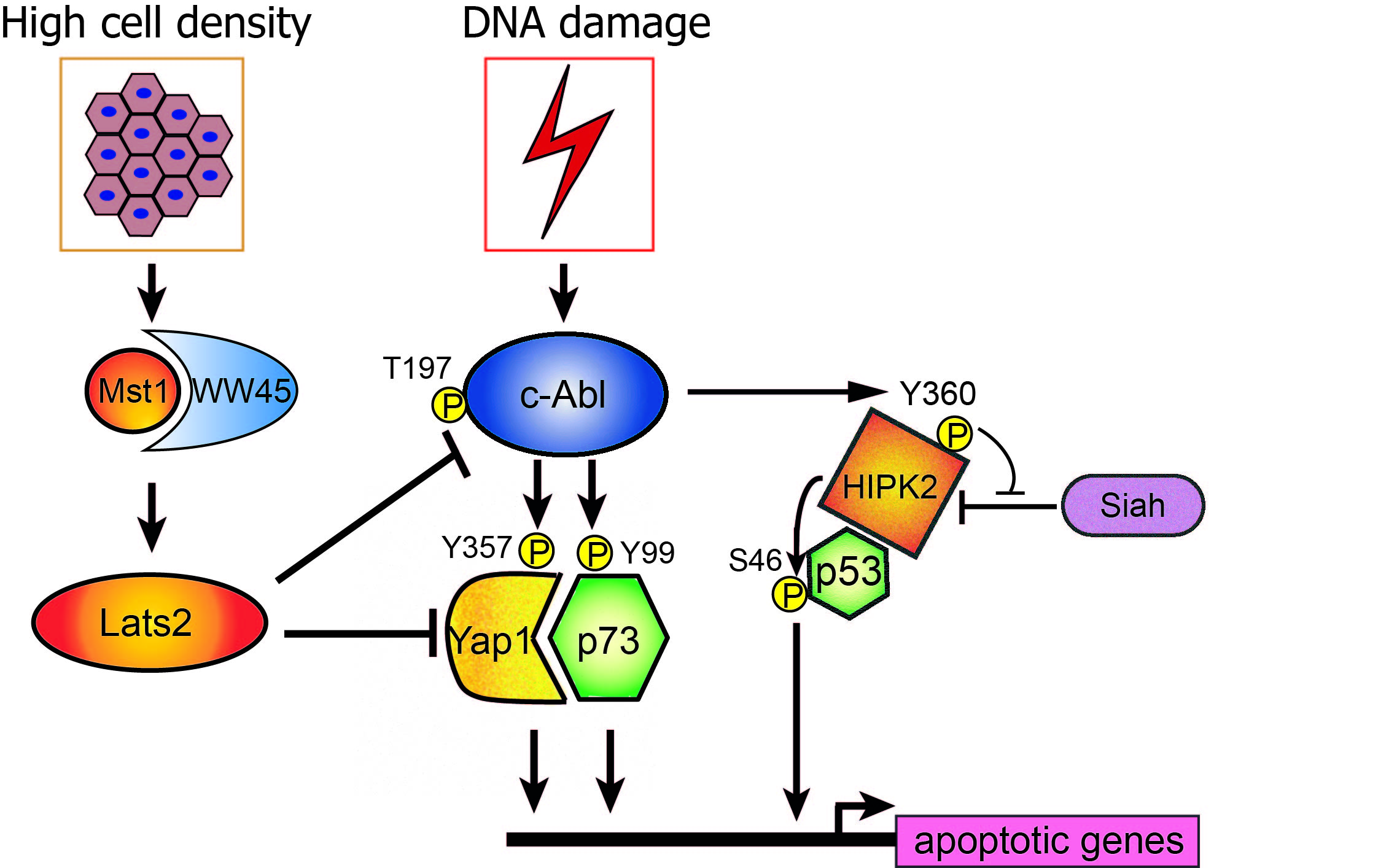- Regulation of the DNA damage response in apoptosis, cell cycle arrest, DNA repair and differentiation
- The Hippo tumor suppressor pathway
Regulation of the DNA damage response in apoptosis, cell cycle arrest, DNA repair and differentiation
For many years our laboratory has studied the involvement of the non-receptor tyrosine kinase c-Abl in the DNA damage response. We have discovered that c-Abl phosphorylation of tumor suppressor p73 is needed for induction of apoptosis by p73. In addition, the p73 coactivator, Yap, is also phosphorylated by c-Abl, and this induces Yap pro-apoptotic activity, where Yap associates with p73 on pro-apoptotic target genes. The phosphorylation of Yap by c-Abl functions as a molecular switch for Yap, since Yap also has activities related to cell proliferation and differentiation. We have also found that c-Abl and c-Src act as regulators in other aspects of the DNA damage response, such as DNA repair and cell cycle arrest, and are also involved in various differentiation pathways.
The Hippo tumor suppressor pathway
The transcription coactivator Yap, aside from being coactivator of p73, is also a coactivator of several other transcription factors, including Runx and TEAD. Its coactivation of TEAD is a robust inducer of cellular proliferation. Yap is therefore regulated by, and is considered the downstream effector of the evolutionarily conserved Hippo pathway, which controls organ size and cell proliferation. Our finding that Yap activity is regulated by c-Abl phosphorylation has led to new discoveries related to interplay between the Hippo pathway and the non-receptor tyrosine kinases c-Abl and c-Src.



